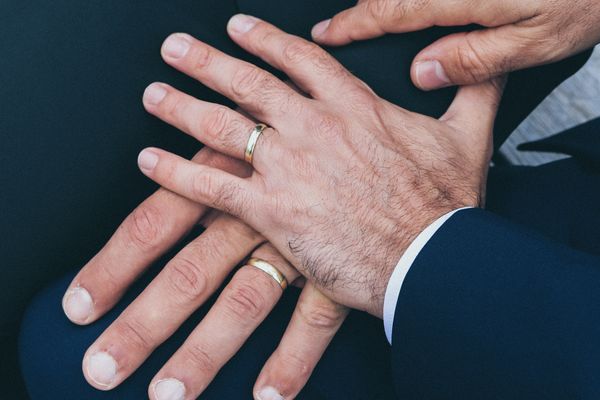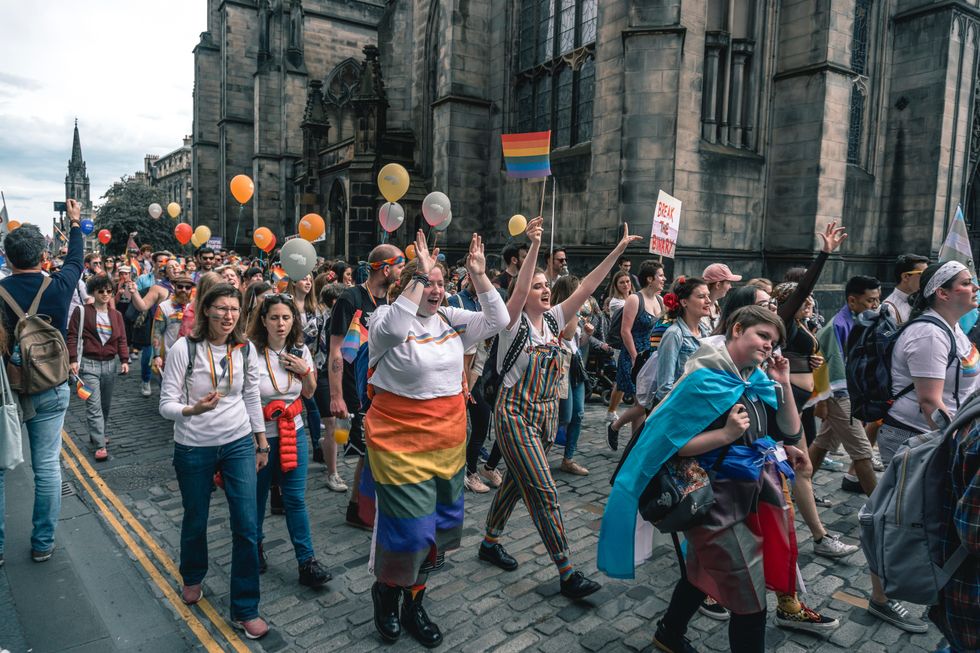In modern society, everyone should have access to quality healthcare services when they need them. Unfortunately, this is not always the case — especially for members of the LGBTQ community.
If you're not part of a marginalized community, then it can be hard to fathom experiencing discrimination in healthcare, but it happens every day in the United States and around the globe. The Affordable Care Act made healthcare discrimination against the LGBTQ community illegal, but conservative rulings and non-compliant healthcare providers are making it hard for some people to get the care they need.
While it might not affect you directly if a man is denied HIV medication because he is gay or if a transgender teen is released from psychiatric care for suicidal thoughts far too early, it's important for us all to fight for equal healthcare access. Here's what you should know about the state of healthcare for the LGBTQ community in the United States and why we should all be advocating for better access.
The LGBTQ experience in the United States
It's true that we've seen some encouraging progress in LGBTQ rights in the last decade. Same-sex marriage is now legal and many states are passing legislation to protect transgender people from discrimination. Unfortunately, that doesn't paint the whole picture of the LGBTQ experience in the United States.
Queer youth are much more likely to be bullied, threatened, or harassed than their peers. Shockingly, 70% of LGBTQ students report being bullied for their sexual orientation at school, and 77% were victims of unwanted sexual comments or jokes in the previous year alone. Being an LGBTQ youth can be an isolating experience, particularly in more conservative communities. Many feel that they cannot come out to their parents because they have heard family members make negative comments.
Not only does bullying cause emotional distress and negatively affect mental health, but it can also lead to very serious consequences, including suicide. LGBTQ people also often have unique or sensitive health challenges that are routinely dismissed by medical professionals.
Working on the problem from inside the system
The people who are best able to help with fighting for inclusivity in healthcare are those working within the industry. Nursing professionals, for instance, are ideally positioned to help ensure better quality of care. They can start to make a difference by working to promote LGBTQ cultural competence.
Some healthcare professionals may not understand how their actions dismiss or negatively affect patients who are members of the LGBTQ community. Nurses and doctors who want to help promote inclusivity can help their peers understand the issues that LGBTQ patients face and how their behavior can help or harm patients' well-being.
Education on proper language to use, facts about the community and the issues it faces, and ways to create a welcoming environment are all key in working on the problem of access from the inside.
The LGBTQ community isn't the only group struggling to access healthcare
It's important for Americans to fight for equal healthcare access for all groups that have trouble getting quality care. Women, for instance, often face challenges when advocating for themselves at the doctor's, especially if they are part of a minority group, a member of the LGBTQ community, and/or are low-income. Around 25% of women had trouble getting the care they needed in 2017 due to the cost of healthcare.
Awareness of all the groups that have trouble accessing healthcare and acknowledging the existence of intersectionality (the overlapping of race, gender, orientation, class, and other factors that may contribute to discrimination) is key for creating a more equal system for all Americans. Those in positions of privilege must be willing to fight hard for groups that routinely face inequality and discrimination.
There's work to be done!
Understanding the problem is the first step, of course. Even though the ACA protects access to some degree, those protections are under attack. Many people within the LGBTQ community are understandably worried about potential regulatory rollbacks and unsubstantiated claims that providing care to certain populations is a violation of healthcare professionals' rights.
There's work to be done in fighting back against discrimination. Regardless of your own access to healthcare, it's important for everyone to participate in ensuring that everyone in this country has fair and equal access. Healthcare is something we all need and people who face discrimination on a daily basis often need it even more.





















